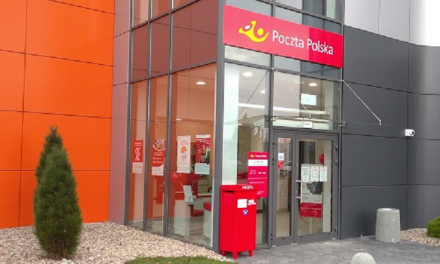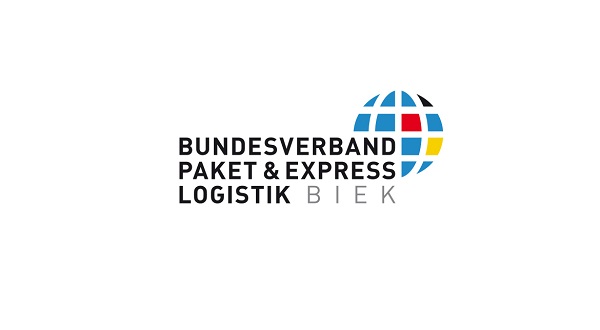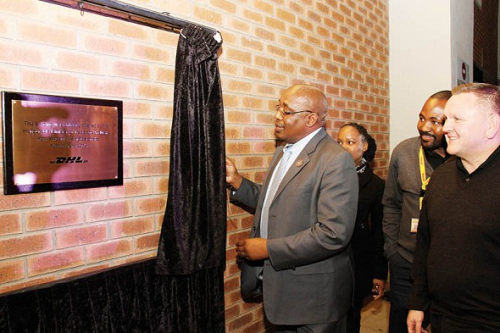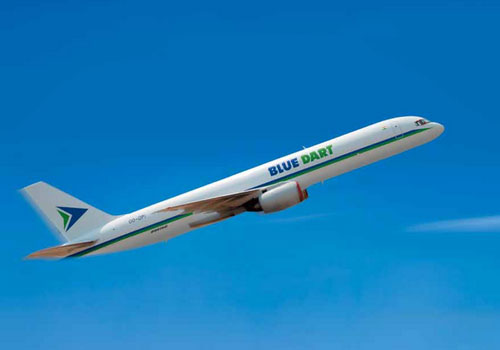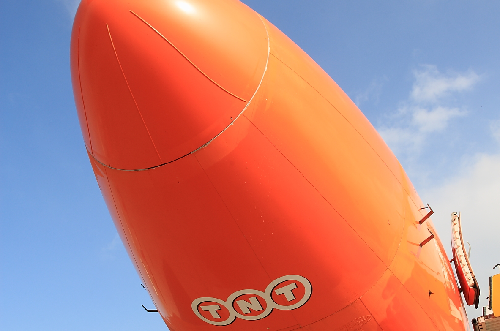
The rise and rise of the integrators: Part one
Triangle Management Services chairman Paul Jackson explains how the foundations of today’s multi-billion dollar global express industry were laid in post-war Australia. It was in Australia, in 1946, that Ken Thomas and others formed TNT (Thomas Nationwide Transport), offering fast interstate delivery. In 1950, Hungarian refugee, Peter Abeles (later Sir Peter, 1924-1999), and partner George Rockey, started Alltrans, which in 1967 merged with TNT and Peter Abeles became the CEO.
In 1953, another Australian, Gordon Barton (1929-2005), set up his own transport business, Ivory-Barton. Subsequently, he joined forces with a former university chum, Greg Farrell, and in 1962, the Rex Trucking Company acquired the larger and much better known Interstate Parcels Express Company (IPEC).
By the early 1970s both IPEC and TNT had become integrators, effectively using all forms of transport, including aircraft, to accomplish overnight door-to-door deliveries throughout Australia. Meanwhile, on the other side of the world, a new phenomenon was taking shape: the international air courier company DHL was started in 1969 by Californians Adrian Dalsey, Larry Hillbloom and Robert Lyn moving documents (ocean bills of lading carried ahead of their corresponding sea freight shipments) from San Francisco to Honolulu via passenger airline excess baggage and behold: on-board courier was born. The business couldn’t have started at all without exploiting a regulatory loop-hole (many more were to come later). The rules at the time allowed an international carrier (Pan Am) to carry unlimited excess baggage on domestic US routes, allowing, for example, a single courier to carry 1,000kg of courier shipments on a single flight. Hillbloom recruited a second-tier, Bill Robinson, Jack Atwood, Ken Sato and Po Chung, who set out to expand the service rapidly from the base in Honolulu to Guam, then to Asia in 1972, Australia in 1973, Europe 1974, Latin America 1977, the Middle East and Africa in 1978, then the eastern bloc in 1983 and finally China, in 1986.
Global vision Hillbloom’s vision was global from the beginning: to rapidly establish pick-up and delivery points for non-dutiable documents in key trading markets and simply build volume over the network by connecting the dots. But he needed dedicated station managers, not just agents. And it was Englishman Dave Allen, who, cleverly, recruited the spirited adventurer/entrepreneurs required to cover the globe, largely from Sydney rugby clubs.
While adventuring himself, on “walkabout” in Australia picking up jobs as a surveillance system salesman, taxi driver and barman, Allen was introduced to DHL by entrepreneurial friend John Callan in 1972. Allen, as a taxi driver, delivered the first documents (flown in by Hillbloom) in Sydney.
The document desk-to-desk business grew rapidly, as it offered a superior service over the available postal services. Allen led the expansion of DHL into Europe, the Middle East and Africa and remains involved as chairman of DHL UK. Explosive growth ensued after 1979, especially when DHL acquired the rival Calico Air Courier, the company Callan had been building independently with a stronghold in the Middle East. Fuelled by the enormous growth engine of this rapidly developing market in the ’80s, DHL went on to grow almost uncontested as the first global courier.
During this time DHL was always short of cash – no venture capital backed it and it never borrowed. It was only much later that DHL sought investment partners.
In 1971, another phenomenon occurred. This time it was in Little Rock, Arkansas, US. On 18 June, Vietnam veteran Fred Smith founded Federal Express (FedEx) with a US$4m inheritance, and $91m in venture capital raised from Rothschild, the largest capital-raising at the time.
His focus was on developing an integrated air-ground system, which had never been done before. Smith developed FedEx on the business idea of a shipment version of a bank clearing house, located in the middle of the representative federal banks, and all their representatives would be sent to the central location to exchange materials… hence Federal Express.
As a student at Yale, Smith, one of the real pioneers, after Hillbloom, Barton and Abeles, conceived what was considered a crazy idea at the time – huband-spoke systems for the overnight movement of goods across the entire US, rather than passengers.
KLM at Schiphol had developed a whole new business by offering excellent passenger transit services via Amsterdam (Delta had done something similar in the US), but no one had come up with the idea of moving documents and small parcels via a single hub with guaranteed scheduled services, which created, literally overnight, a next-morning premium service.
FedEx eventually chose the more centrally located Memphis, Tennessee, as its hub, not necessarily the optimum location but it did have good weather and a large low-cost student labour force available. Memphis University was even persuaded to change its lecture schedule to afternoons/evenings allowing students to sort parcels at the critical four-hour gap in the middle of the night. Again climbing on a regulatory loophole – no traffic rights/licences were required for very small aircraft (Dassault Falcons) under 12,500llbs -Smith was able to create a niche and fill it very quickly, while the established parcel carrier, (since 1907) UPS (United Parcel Services), and dominant air freight forwarder, Emery, “sat on their hands” and watched. Smith also kept his early planes flying as a contractor for US Mail, even though postal regulations were not technically relaxed until 1978 to allow the carriage and delivery of documents.
But it nearly didn’t happen, apparently. There were only 138 parcels over 25 destinations on the first night and subsequent poor loads soon led to a shortage of cash. Smith was down to his last few dollars, not enough to meet the payroll. So what to do? In America you go to Las Vegas and put it all on a blackjack table. He won $27,000!
However, things turned for the worse when investors ousted Smith and put an air force general in charge. There was a revolt among the staff and Smith was brought back.
The rest, as they say, is history FedEx now ships, via many hubs, millions of packages a day worldwide and the first “express” company, REA in the US (essentially via the air and rail networks), went quickly out of business.
FedEx’s primary overnight delivery rival in the early 1980s, before UPS got into overnight, was Purolator Courier. Its US operation was acquired by Emery in 1986, which itself was then acquired by Consolidated Freightways and became Menlo Logistics. Menlo was eventually acquired by UPS. Purolator continued in Canada, and with the backing of Canada Post is now bravely moving back into the US domestic market.
While all this was going on, UPS was sitting firmly on its hands. It had been formed as long ago as 1907 and was (and remains) one of the largest package delivery companies in the world. If UPS had any international aspirations it was hard to see them although, curiously, in 1976, it acquired a domestic delivery company in West Germany. However the German operation offered a three to four-day door-to-door delivery, which was going to prove very difficult to upgrade to an overnight service.
The first real move into the express business in Europe came from TNT. In 1974 it opened a London to Paris overnight delivery service under the Kwikasair banner.
Unfortunately its Australian management hadn’t done their homework and was not familiar with the foibles of HM Customs or its French counterpart. Kwikasair’s foray into the intra-European express business proved a costly failure. The reasons for the failure attracted great interest at TNT’s Sydney headquarters.
In 1975, TNT made a tentative approach to acquire the business of Sayer Transport Group, which had been founded by 22-year-old Ian Sayer in 1967. Sayer Transport Group had been the pioneer of overnight door-to-door delivery when it established a daily service between London and Northern Ireland in 1969. It was the first operation to compete directly with the airlines. Going from strength to strength, Sayer opened more UK depots and began to specialise in overnight services to the UK’s offshore islands, Northern Ireland, Isle of Man, and the Channel Islands, where air services were weak. The company had generated much industry and national publicity in the 1970s. TNT had begun to realise it needed local expertise to assist in its European expansion. Despite some discussion, the matter lapsed until a more determined TNT approach to Sayer in 1977, offering him a much improved deal that included the position of CEO of, and a 20% stake in, TNT’s UK company. But Sayer chose not to accept the offer, so TNT acquired Inter County Express, a UK distribution company which it used as the basis for the UK operation.
At the same time, TNT recruited Alan Jones from the state-owned rail offshoot national parcels company Roadline (now Lynx/UPS). He quickly rose to CEO, in which position he remained for 19 years. Jones grew the business and the market, causing others to join and many other local transport companies to go out of business. Between 1999 and 2004 he was TPG’s group MD for express.
To read the second installment, click here. To read part three, click here.
Post&Parcel thanks Paul Jackson, and acknowledges the assistance of: Ian Sayer, Barry Hansen and John Callan.


